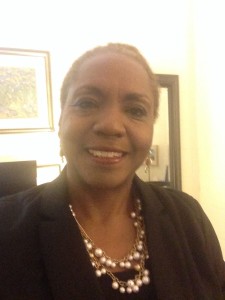Webinar: Can restorative justice address structural and racial injustice? A neuroscience perspective
The first guiding principal of Restorative Justice states that “Crime is fundamentally a violation of people and interpersonal relationships.” Yet, crime is not always judged as criminal and there can be far-reaching impact. Recent events involving the shootings of unarmed African Americans by police clearly represent a violation far beyond that of the grieving families and their immediate communities. Although, a circle process would no doubt be useful; could it bring about lasting structural change that would prevent future incidents and bring healing to the nation. That is the question.
Thanks to cell phone cameras, we have become a nation of witnesses. Oft repeated video footage, countless commentary and the 24 hour news cycle enable us to view evidence and hear expert and clearly non-expert opinions. While we may all be watching the same coverage, our perceptions of it are very different. One reason is certainly the nature of our experience living in a race conscious and polarized society. Another reason, I argue is because of the nature of our brains.
In this webinar we will explore the emerging field of Criminal Neuroscience. Criminality has long been associated with psychological pathology, but only recently has the field embraced aspects of social and cognitive psychology that explain the pervasive nature of bias and how attitudes acting below conscious awareness influence not just the officer in the car, but the prosecutors, the juries and the judges.
Is there a role for Restorative Justice when the accused is the entire United States Criminal Justice System? A yea vote acknowledges that the system consists of individual human beings. The processes and practices of Restorative Justice, fundamentally work to humanize both victims and perpetrators allowing a mechanism for communication and often mutual compassion. However, a nay vote reminds us that there has not been enough truth and far less reconciliation regarding the systemic and institutional nature of racism in the United States. What may be necessary is for the next version of Restorative Justice to create guiding principles and practices that will address that.
Join us for further deliberation.
Guest Bio

Cheryl Talley, PhD Associate Professor, Psychology Co-Director, Project Knowledge- Virginia State University
Dr. Cheryl Talley has a deep commitment to teaching and learning. Her research examines the role of affective neuroscience in elucidating the mental, emotional and spiritual factors that lead to lasting behavioral change, specifically as it relates to high academic achievement. In a study funded by the National Science Foundation, Dr. Talley and her colleagues have sought to reveal the role that affective factors like academic identity and emotional regulation play in student success. Studies from the field of behavioral health have clearly demonstrated the challenges associated with creating and sustaining health-promoting habits. Similar challenges are associated with attaining and maintaining academic skills, especially among students who attend under-resourced schools. As a faculty member in the Behavioral and Community Health Sciences graduate program she utilizes various strategies, including mindfulness, discovering your why and education in human values (EHV) to help students develop strong academic identities.


